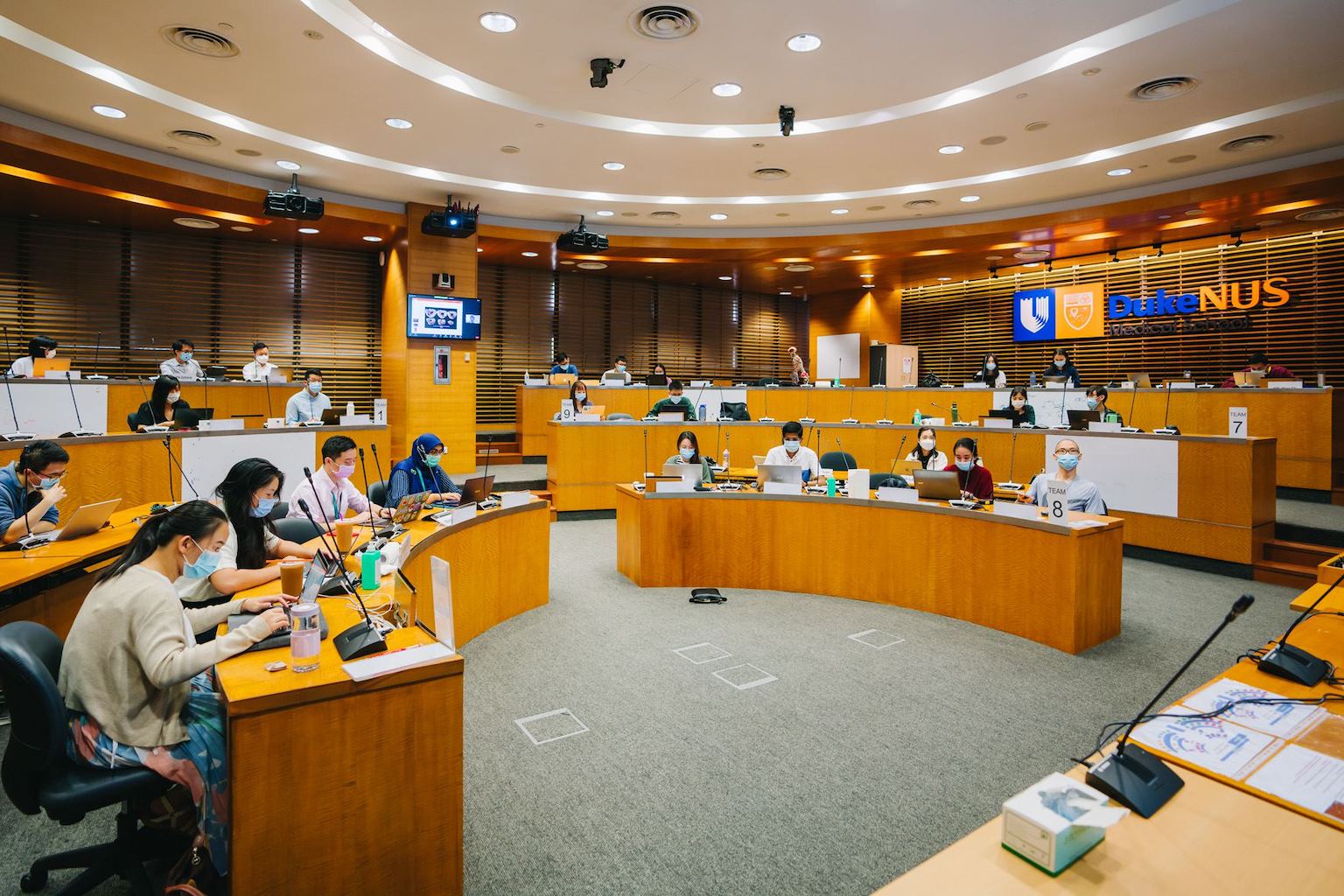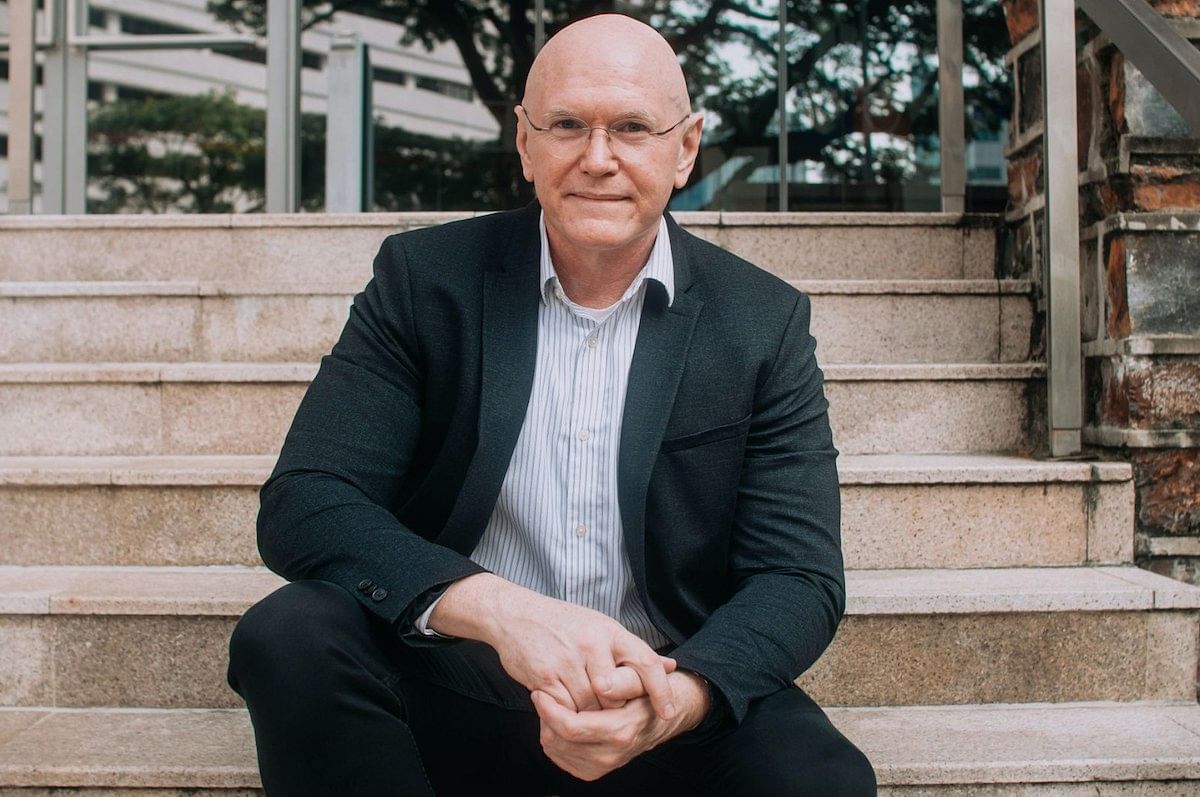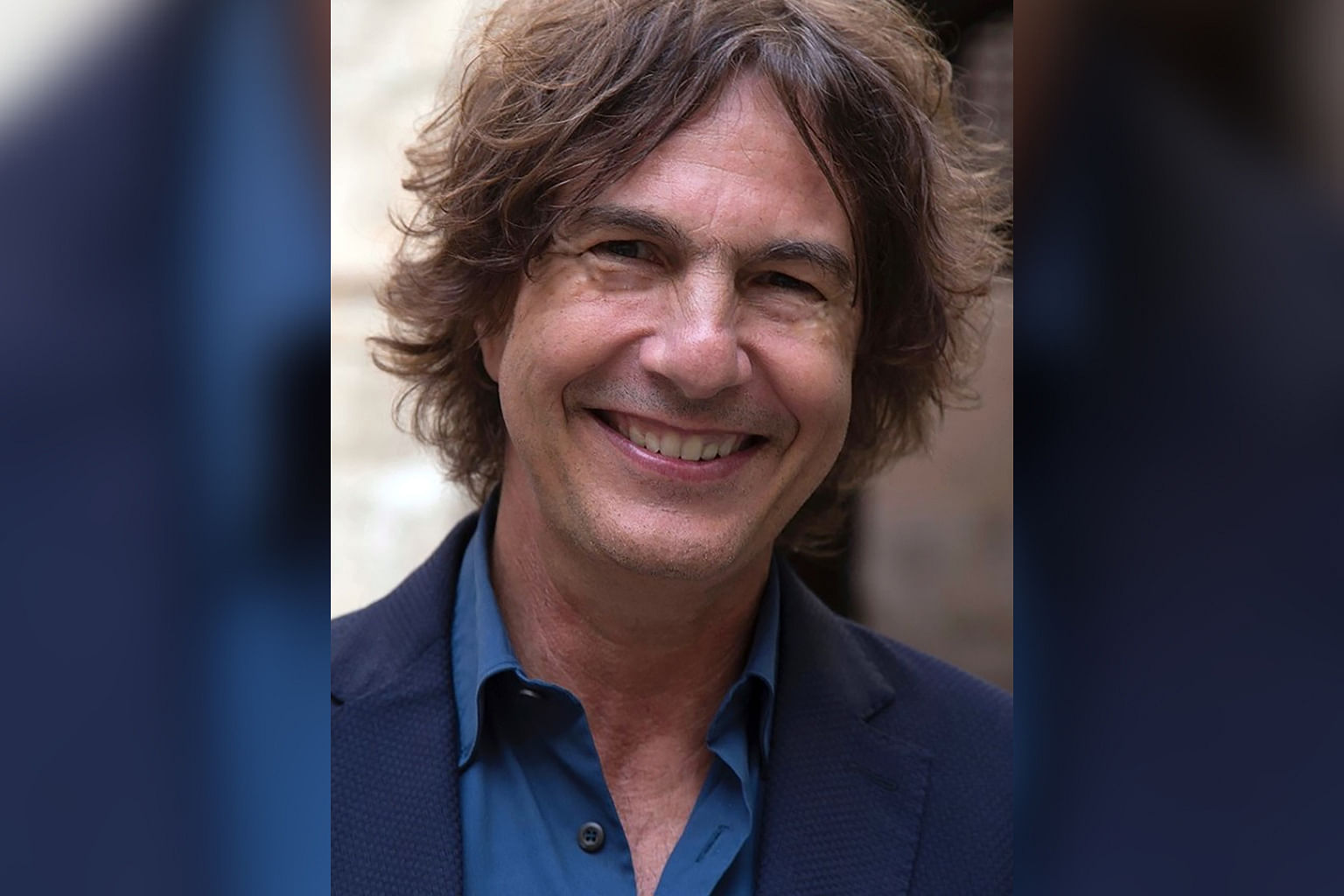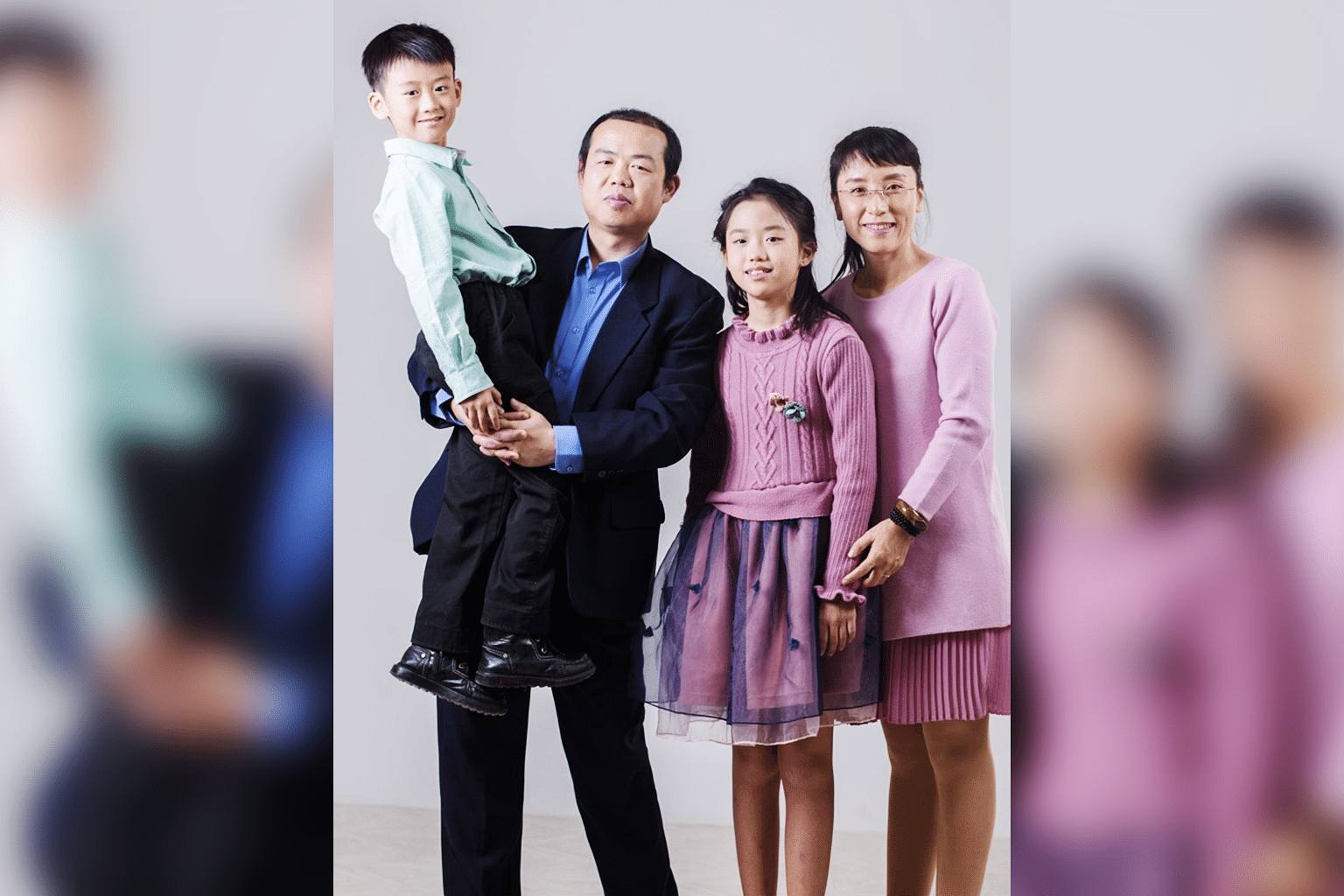BRANDED CONTENT
New master’s programme empowers researchers to develop faster, better medical treatments
Offered by Duke-NUS Medical School in partnership with Eureka Institute, the interdisciplinary course focuses on translating laboratory research into real-world solutions

Like most programmes at Duke-NUS Medical School, the Master in International Translational Medicine uses the School's signature flipped classroom TeamLEAD pedagogy that empowers learners through an active team-based learning experience.
PHOTO: DUKE-NUS MEDICAL SCHOOL
Medical research is more advanced than it has ever been. From treating asthma to cancer to heart disease, steady advancements are being made on some of the most pressing issues in healthcare today.
Nonetheless, the question remains: How can researchers translate laboratory breakthroughs into newer, faster and more viable treatments to improve patient care?
Enter Duke-NUS Medical School. As the brainchild of two world-class institutions – Duke University and the National University of Singapore – Duke-NUS has been training and nurturing a new generation of clinicians capable of bridging the gap from bench to bedside for the past 17 years.
Research lies at the heart of each of the school’s world-class educational offerings – from the Doctor of Medicine (MD) programme to the three Doctor of Philosophy (PhD) tracks that address key areas of need in Singapore’s ongoing economic transformation. And for those who are interested in both, the school also offers a dual-track MD-PhD programme that will further prepare students to take their research findings from bench-to-bedside and back.
All in all, the programmes at Duke-NUS cover everything from bench work and clinical research to translational medicine, with the intent of creating compassionate, informed clinician scientists or, in other words, clinicians who are also thoroughly versed in conducting research.
“Our research-centric modules offer medical students, and other professionals in the sector, a deep dive into understanding and evaluating research studies, as well as the opportunity for them to gain more knowledge and insight on specific diseases,” says Associate Professor Silke Vogel, senior associate dean of graduate studies at Duke-NUS.
Enriching global partnerships take learning to the next level
To build upon the success of its research-intensive programmes, Duke-NUS continually creates new and exciting opportunities for both academic and industry professionals to hone their skills.
Last year, Duke-NUS introduced the Master in International Translational Medicine (MITM) programme last year – the first and only course of its kind in Singapore – in order to further strengthen the crucial interdisciplinary branch of translational medicine, which converts research findings into effective patient-based solutions.
It was launched in collaboration with Eureka Institute, an Italian non-profit foundation that initiates global collaborative translational medicine programmes.

Translational medicine involves building bridges between different areas of expertise not just within medicine, such as between neurology and oncology, but also between complementary fields. For instance, connecting legislative and regulatory experts with medical researchers to facilitate bringing a newly-developed drug to market.
The MITM programme is the latest in a long line of Duke-NUS’ globally esteemed research collaborators, which help enhance the learning experience and keep Singapore’s medical research scene at the forefront.
Through the MITM course that caters to both academic and industry professionals, students are given the privilege of leveraging leading industry experts from the Eureka network.
Partnerships like these also give students the option to pursue their thesis abroad in some of the foremost research institutions, in countries such as Italy, the US, the Netherlands, and the UK.

“The partnership with Eureka Institute allows us to bring an established network of international translational medicine practitioners to help develop content for the courses, teach the courses and provide mentorship for thesis projects,” says Professor Scott Compton, MITM’s programme director and the associate dean for Medical Education at Duke-NUS.
“This relation provides unique opportunities for mentoring, networking and growing, personally and within society,” concurs Professor Salvatore Albani, MITM’s strategic director, who is also senior clinical scientist and senior consultant, Division of Medicine, at KK Women’s and Children’s Hospital (KKH).
What makes MITM stand out?
Through this partnership, both Professors Compton and Albani hope that MITM’s graduates will be able to address patients’ health care needs more effectively and efficiently.
“While the notion of translational medicine has really taken shape over the past 20 years, we still see a system for drug, device and treatment development that is incredibly complex and fraught with challenges that continually make developing these solutions unlikely,” says Prof Compton.
“So, the MITM was conceived as a course of study for people who want to work within and between systems to learn to avoid or overcome these challenges and also to work at a higher level to advocate for a more efficient and effective process for addressing patients’ needs.”
It was precisely these reasons that made Mr James Gu, radiographer for 23 years at KKH and current MITM student, take the plunge.
During his two years pursuing a Master’s in Medical Physics at Duke Kunshan University, his interest in translational medicine was piqued, and he opted to pursue the MITM in place of a PhD programme in medical imaging at another university.

“The PhD programme would have been a three- to five-year journey, which I was not ready to take up,” he explains. “MITM can be taken as a part-time course, which allows me to study while continuing my work at KKH.”
Doing so would also let him supplement his coursework with continued research at his day job.
Mr Gu particularly enjoys the enriching weekly online discussions and writing blog posts that offer an opportunity for deeper reflection, as well as the invaluable chance to learn from course mates who come from various backgrounds and disciplines. Each person brings a different perspective to the table, which makes every discussion interesting, he adds.
Even in Singapore, a first world country by any metric, infinite opportunities exist to make advancements in healthcare for the benefit of patients, says Prof Compton, whether it’s improving the treatments for very common diseases like diabetes or finding initial effective treatments for rare diseases such as juvenile arthritis.
“So, we have the big, hairy, audacious goal of educating highly qualified people who will work passionately to be ‘agents of change’ and seek ways to improve the system by which new discoveries are made and translated into action that benefits patients,” says Prof Compton.
“The objective for MITM is to create coordinated, global ecosystems, which will catalyse the evolution of translational medicine to be truly impactful,” finishes Prof Albani. “SingHealth’s motto ‘Patients, at the heart of what we do’ resonates deeply in our hearts.
For more information on the Duke-NUS Master in International Translational Medicine programme, visit www.duke-nus.edu.sg/admissions/masters/mitm.



